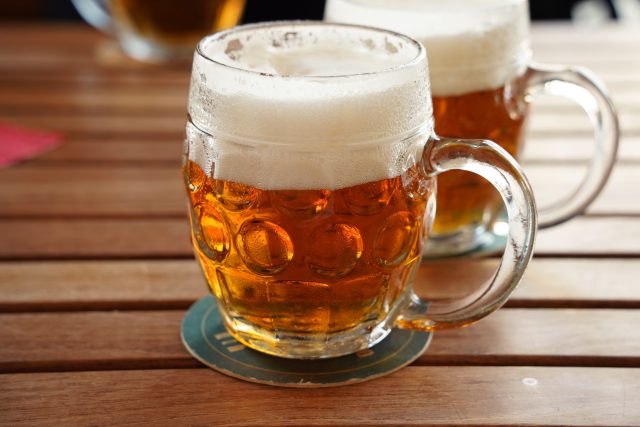Beer consumption in the Czech Republic plummets to a record low
People are drinking much less beer in the Czech Republic than they ever have before, according to new data.

The country, which is known for having the highest beer consumption per capita in the world, has reportedly battled with economic uncertainty having a knock on effect on budgets along with the rising cost of draught beer affecting consumer spending. Last spring, the Czech Republic braced itself while tax on its draught beer soared from 15% to 21% as part of new plans revealed by its government.
According to Novinky.cz, beer consumption in the Czech Republic is still the highest in the world despite its significant drop in recent years. The average number of beers drunk per capita in 2023 was 256 beers per head, which is equal to approximately 128 litres, reflecting similar figures to the lowest average consumption figures during the pandemic restrictions and the lowest record number in 1963.
Radio Prague International (RPI) also highlighted how in 2005, beer consumption reached a record high when Czechs consumed 163.5 litres, or 327 beers per head. Consumption per person was 153 litres in 2009 holding at 140 litres for nearly a decade before falling to 129 litres in 2021.
Despite this, after the pandemic, local reports highlighted how many continued to avoid beer consumption in restaurants. In 2021, the Czech Statistics Office estimated that beer consumption that year was the lowest since 1989 when it had been at around 151 litres per person and even jumped above 160 litres momentarily in the 90s.
Agricultural, food and technology partnerships between the Czech Republic and the Philippines were now also in place as a bid to support both country’s economies during challenging times.
In a recent interview, RPI asked Tomáš Slunečko, executive director of Český svaz pivovarů a sladoven or Czech Brewery and Malt Association (ČSPS), to pinpoint what the data revealed.
Partner Content
Slunečko told RPI: “Apart from small fluctuations in post-Covid 2022, interest in consumption of beer has gradually dropped.”
Similar situations can be seen across Europe, however Germany has also experienced a severe downturn in domestic beer sales and along with the Czech Republic both countries have appeared to be negatively affected in particular.
Slunečko highlighted how, in the Czech Republic, beer sales in pubs and restaurants dropped by 30% last year as more people chose to drink at home, but admitted that reduced alcohol consumption across the country was also now affecting the Czech economy and the culture of drinking in pubs, having a detrimental impact on people who relied upon pub visits as a form of social interaction.
Slunečko explained to RPI: “The drop in beer consumption can have a very negative impact on the catering sector as a whole. For a long time we have pointed out that pubs and restaurants are often dependent on serving drinks for their livelihood. I think that the drain of people from pubs and the associated trend of beer consumption moving into houses and garages will lead to the subsequent closure of these smaller businesses and may have a negative impact on the social lives of people living in villages and small towns.”
Slunečko also told the radio station that we are also seeing an increasing number of people turning to non-alcoholic beer and added: “This is the only consistently growing part of the sector so I think that breweries are coming up with new flavours and different variants every season to a much wider range of consumers. The breweries are addressing the decline in consumer interest and beer consumption primarily by expanding and diversifying their offering and striving to maintain modern trends.”
Despite the gloom, last year, Žatec and the Landscape of the Saaz Hops and Czech glassware became inscribed to the UNESCO Intangible Cultural Heritage List, re-amplifying the country’s integral relationship with beer quality and historical importance.
Related news
Carlsberg Hong Kong expands no and low alcohol portfolio




